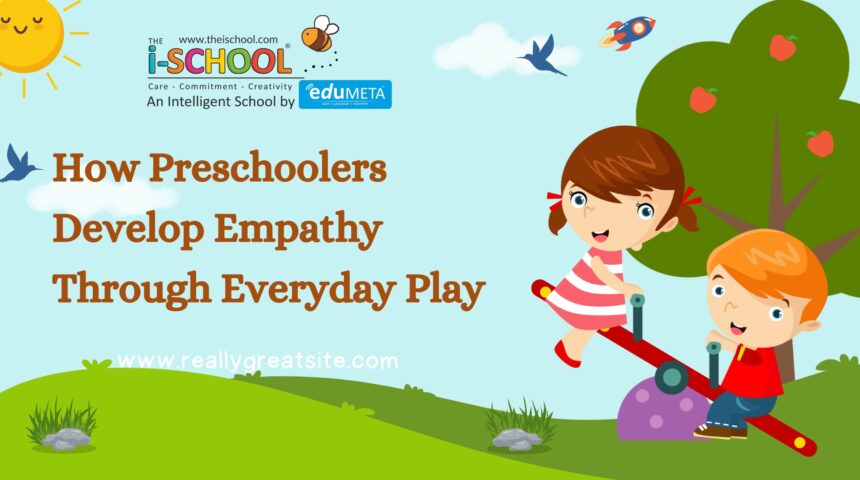How Preschoolers Develop Empathy Through Everyday Play

Empathy, the ability to understand and share the feelings of others, is an essential social and emotional skill. While it may seem complex, young children naturally begin to develop empathy through everyday play. In preschool, simple activities, group interactions, and imaginative scenarios offer children opportunities to practice empathy in a safe and nurturing environment.
Here’s how preschoolers develop empathy through play:
1. Role-Playing and Pretend Play
Pretend play is one of the most powerful tools for building empathy in young children. When preschoolers engage in role-playing activities, whether acting as parents, teachers, or friends, they step into someone else’s shoes. This helps them understand different perspectives and emotions. For example, playing “house” or “doctor” allows them to think about what others feel, fostering a deeper sense of empathy for others’ experiences.
2. Collaborative Play and Teamwork
Group play and cooperative activities teach preschoolers the importance of working together and understanding others’ needs. Whether they are building a block tower or sharing toys, preschoolers learn to navigate social dynamics. When conflicts arise during play, children learn to negotiate, listen, and respond to their peers’ emotions. This collaborative process helps them recognize and respond to the feelings of others.
3. Learning Through Storytelling
Storytelling is another way children build empathy. Preschoolers often relate to the characters in stories, identifying with their joys, fears, or challenges. Through discussions about the characters’ actions and feelings, children learn to express their own emotions and develop a deeper understanding of how others feel. Books that focus on kindness, helping, and sharing are especially effective in promoting empathy in young children.
4. Emotionally Expressive Toys and Games
Toys and games that focus on emotions, such as emotion cards or dolls with different facial expressions, can help preschoolers identify and relate to feelings. By exploring how characters or toys “feel” during play, children become more aware of emotional cues and learn how to respond compassionately to others.
5. Building Emotional Vocabulary
Through play, children naturally express and encounter various emotions. Preschool teachers and caregivers can guide this process by helping children label and understand their feelings. When children can identify emotions like sadness, happiness, or frustration in themselves and others, they are better equipped to respond with empathy. Simple phrases like “How do you think your friend feels?” or “Can you help them feel better?” encourage empathy-driven thinking.
6. Caring for Others in Play
Activities that involve nurturing or helping behaviors, such as playing with dolls, pets, or even plants, provide opportunities for preschoolers to practice care and concern. When children take care of a “baby” doll or a class pet, they simulate the responsibility of attending to another’s needs. This kind of play encourages compassionate behavior and reinforces the importance of empathy in real-life situations.
7. Observation and Imitation of Adults
Children are always observing and imitating the behaviors of adults around them. When teachers and parents model empathetic behavior, such as showing kindness or helping someone in need, children naturally imitate these actions during their play. Through this imitation, they begin to internalize the values of empathy and kindness.
Final Thoughts
At eduMETA THE i-SCHOOL, we understand the importance of empathy in early childhood development. By encouraging activities that foster empathy through play, we help children develop social and emotional skills that will serve them throughout their lives. Everyday play is not just about fun; it’s an essential part of teaching children how to care for others, recognize emotions, and build meaningful relationships. Through play, children become compassionate individuals, ready to thrive in a connected and caring world.
